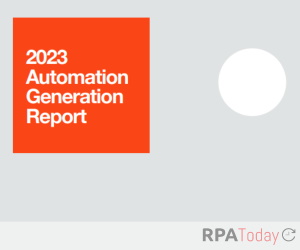
Employees, who are increasingly asked to produce more with fewer resources, are looking favorably on process automation solutions as a way to keep up, according to the results of a new report. The 2023 Automation Generation Report commissioned by intelligent automation technology provider UiPath found 60 percent of those polled agree that automation software can help alleviate the burnout they are feeling and seeing among their colleagues.
According to the research, which polled 6,400 workers globally, nearly 30 percent of respondents said they personally have been asked to take on more tasks in the past six months because of layoffs or hiring freezes. An overall talent shortage plaguing many technology fields has only added to the burden rank-and-file employees are feeling.
UiPath calls the group of workers embracing intelligent automation software solutions the “Automation Generation.” Overall, survey respondents said—when asked what aspects of their job would change with the help of automation tools—they wanted more flexibility when it comes to their work environment (34 percent), more time to learn new skills (32 percent), and more time during the workday to focus on critical tasks (27 percent).
“Disruption in the workplace and macroeconomic factors often mean employees are asked to bear that burden by doing more with less—but it doesn’t need to be that way,” said Brigette McInnis-Day, chief people officer at UiPath. “The employees of Automation Generation are embracing AI-powered automation so they can better manage their workloads, excel in their careers, and improve their work-life balance. Businesses that deploy AI in an open, flexible, and enterprise ready way are best positioned to attract and retain the types of employees that will help them thrive in an automation-first world. Automation is a key differentiator for companies to attract and retain by empowering employees and driving engagement.”
While the UiPath report tries not to define the “Automation Generation” by age, the research did find younger workers generally more accepting of automation solutions than older ones. When asked if AI-powered automation solutions would help them at work, nearly 70 percent of GenZ employees (born between 1997 and 2012) agreed compared to 63 percent of Millennials (1981-1996), just over half of Gen X workers (1965-1980) and only 44 percent of Baby Boomers (1946-1964).
Overall, 31 percent of those polled in the report are already using business automation solutions at work. The work they most want automation help from includes analyzing data (52 percent), inputting data/creating datasets (50 percent), resolving IT/technical issues (49 percent) and running reports (48 percent).


